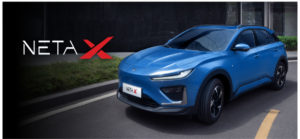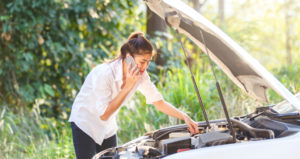World Resources Institute data shows that Indonesia contributes 2,03% gas emissions that pollute the world's air (10 highest in the world). It is recognized worldwide that transportation has a significant contribution to greenhouse gas emissions. Even the contribution can reach 15 percent globally.
According to I Gusti Ayu Andani from the Regional and City Infrastructure System Expertise Group, Bandung Institute of Technology (ITB), not only about the contribution of Indonesia's gas emissions which are included in the ranking 10 world's highest, but what should be worried about is the average level of greenhouse gas emissions in Indonesia which continues to increase.
“The increase in emission levels in Indonesia every year is higher than the global rate. This means that there is no significant decrease,” said Ayu when giving a presentation at a webinar held by the Technology Journalists Forum (Forwat), Wednesday, 25 Mei 2022.
The same thing was explained by Fabby Tumiwa, Executive Director Institute for Essential Services Reform. According to him, Emissions from the transportation sector contribute 27% of total emissions or approx 160 million tonnes in Indonesia in year 2020. Total emissions in year 2020 as big 590 million tonnes and is expected to continue to rise if no intervention is made.
“The biggest emission contributor in 2020 comes from the electricity sector by 35% followed by the transportation sector viz 27%. In order to achieve Net Zero Emissions (I) in year 2050 around the world, decarbonization is needed in both sectors, specifically the transportation sector, One of them is by switching to electric vehicles,” said Fabby.
Fabby called, electric vehicles must master 40% total vehicle sales in the year 2030 globally to achieve net zero emission in 2050. The transition from conventional vehicles to electric vehicles is not an easy matter. In Indonesia, for example, only 3.500 two-wheeled electric vehicle units and 1.800 units of four-wheeled electric vehicles sold in 2021. One of the biggest challenges is building the supporting ecosystem, especially battery recharging stations and also battery replacement (swap).
Ayu added, sustainable efforts to achieve NZE from the transportation sector do not always have to use smart technology that is too complicated. Some features of a smart transportation system that can be implemented are shared mobility, elektrik mobility dan integrated mobility.
“Shared mobility is ride sharing as has been implemented by companies such as Gojek. Also integrated mobility where all transportation is connected and integrated with one another. Meanwhile, electric mobility is using vehicles that are more environmentally friendly, such as electric vehicles,” she explained.
However, according to Ayu, all environmentally friendly transportation infrastructure must be sustainable. Not only providing electric vehicles, but also other supporting infrastructure, like recharging. Ayu's statement was also reinforced by Fabby. She said, Electric vehicle charging infrastructure can increase public confidence in electric vehicles, although currently the realization of its development is still far from the predetermined target.
Fabby explained, the realization of SPKLU battery recharging stations and battery replacement or SPBKLU only reached, respectively 47% and 9%, compared to the road map made by the Ministry of Energy and Mineral Resources in 2021. Whereas, he is sure, Properly implemented electric vehicle charging infrastructure can help reduce range anxiety and increase public confidence in electric vehicles.
Ayu herself appreciates what an application has done in Indonesia, namely GoJek. According to him, although the Transportation Law has not included applications such as Gojek as a mode of public transportation, but this ride-sharing model can be relied upon to reduce CO2 emissions in a sustainable manner. One of them is by supporting the use of electric vehicles and providing end-to-end integration. This will prove to have a more significant impact on the environment.
In response to this, Vice President Corporate Affairs Gojek, Teuku Parvinanda revealed that since last year Gojek has committed to realizing Zero Carbon Emissions (Zero Emissions) in the year of 2030 as part of our seriousness to achieve the Tiga Zero target (Three Zeroes) in the same year – i.e. Zero Carbon Emissions, Zero Junk (Zero Waste), and Zero Barriers (Zero Barries). Each covers pressing issues related to environmental performance, social, and governance so that it has become Gojek's focus and a driving factor for the company to give its best effort in everything it does.
“Environmentally friendly is also a relevant issue and needs to be our common concern and priority. The intention to provide the best for the parties in our ecosystem has been there since the beginning, by addressing the real challenges that Indonesians face every day, that's why we present a variety of innovations starting from the presence of the GoGreener feature in our application, electric vehicle trials, to GoTransit,” said the man who is often called Andri.
In addition, Gojek has accelerated the transition process to electric vehicles (EV) in Indonesia by conducting trials 500 two-wheeled EV unit in South Jakarta. In order to answer the challenges of electric vehicle infrastructure, Gojek is collaborating with Pertamina to provide a battery exchange station, at seven (7) Pertamina gas station in South Jakarta. Thus, Gojek driver partners can try electric motorbikes with cheaper operational benefits compared to conventional motorbikes.
“At the end of the year 2021, Gojek in collaboration with TBS Energi Utama has formed Electrum to develop the electric vehicle ecosystem in Indonesia. Then in February 2022, We strengthen this commitment again with several parties, namely Pertamina, Gesits, Gogoro as well as presenting electric GoRide services. So that, besides presenting an environmentally friendly mode of transportation, We also ensure easy access for consumers and our partners,” said Andri.
Another green program carried out by Gojek is the GoGreener feature which invites consumers to 'plant trees'’ while walking on GoRide and GoCar, as part of individual contribution to sequester carbon footprint. Since this feature was launched, Gojek and its consumers have managed to collect, plant or adopt 5.000 more trees on 13 different locations through the GoGreener Absorb Carbon Footprint feature (GoGreener Carbon Offset).
in April 2022, Gojek officially launched the GoGreener Collective Tree feature which encourages consumers to plant trees while on the go, only by adding a fee of IDR 1,000 – Rp2.000. As a first step to launch this feature, Gojek is back to planting 1.000 tree seedlings in Demak, Central Java, and every three (3) moon, trees collected by consumers will be planted at these locations and other locations.
“In less than a month there have been more than 100.000 users who activate the GoGreener Collective Tree feature,” said Andri.
Do not stop there, Gojek also presents the GoTransit feature which allows integration of Gojek transportation services with public transportation service providers. By reducing the use of private vehicles, Consumers can help reduce their carbon footprint while still doing their daily activities.
Fabby said, It is hoped that Gojek's efforts in presenting a comprehensive and environmentally friendly electric vehicle infrastructure will be followed by other transportation companies. Various initiatives such as those carried out by Gojek, especially the use of electric vehicles can reduce carbon emissions by 28% on wheeled vehicles 4 and 55% on two wheelers. Especially, Total Cost Ownership of electric vehicles during battery life, 20% Cheaper than conventional vehicles.
Read too : Gojek and Gogoro Will Present Two-Wheeled Electric Vehicles to Indonesia







